The Future of Sustainable Production with Advanced Pellet Mill Technologies
Table of Contents
- Innovative Technologies Driving Sustainable Pellet Production
- Key Features of Advanced Pellet Mills for Eco-friendly Operations
- Integrating Renewable Energy Sources in Pellet Manufacturing
- Best Practices for Optimizing Production Efficiency in Pellet Mills
- Assessing the Environmental Impact of Pellet Production Techniques
- Future Trends in Pellet Mill Technologies for Green Manufacturing
- FAQS
- Conclusion
- Related Posts
The demand for sustainable production methods has become paramount as industries increasingly recognize their environmental impact. According to a report by MarketsandMarkets, the global pellet mill market is projected to reach USD 6.1 billion by 2026, fueled by the growing need for more efficient feed processing solutions. Shanghai Zhengyi Machinery Engineering Technology Manufacturing Co., Ltd. (CPSHZY), a leader in the industry with over 25 years of expertise in manufacturing feed processing machinery and large-scale production of pellet mill dies, is at the forefront of this transformation. As more aquaculture farms and feed plants turn to advanced pellet mill technologies, the integration of eco-friendly practices not only improves production efficiency but also aligns with global sustainability goals. This blog explores the future of sustainable production through innovative pellet mill technologies, highlighting the industry's shift towards environmentally conscious processes and the essential role that companies like CPSHZY play in this evolution.
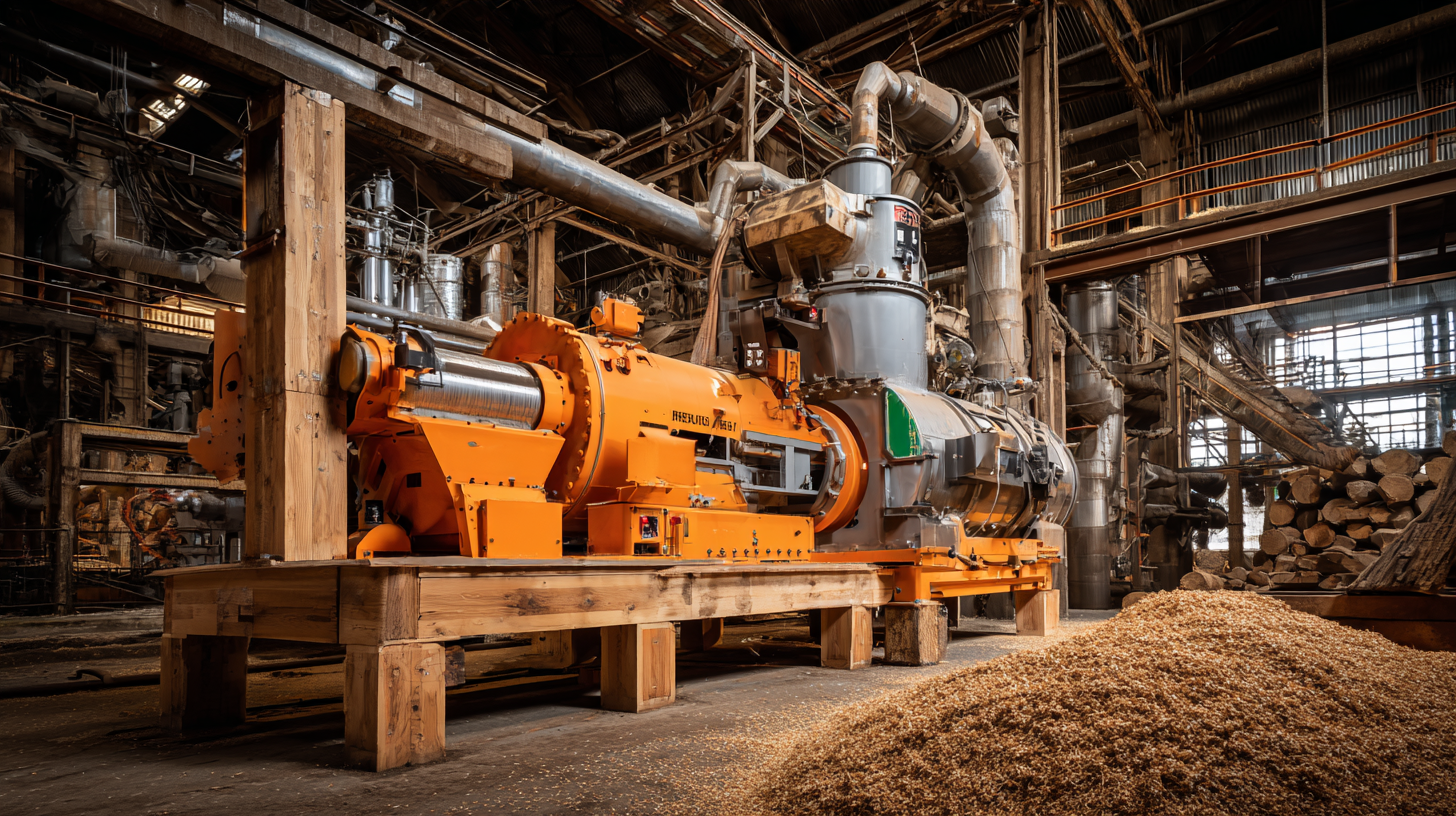
Innovative Technologies Driving Sustainable Pellet Production
The evolution of pellet mill technologies is crucial in advancing sustainable production methods. Innovative designs and enhanced engineering are transforming how biomass materials are processed, minimizing waste and reducing carbon footprints. For instance, the integration of high-efficiency motors and low-energy consumption machinery allows for a significant decrease in energy requirements during pellet production. These advancements not only boost productivity but also contribute to a greener manufacturing process that aligns with global sustainability goals.
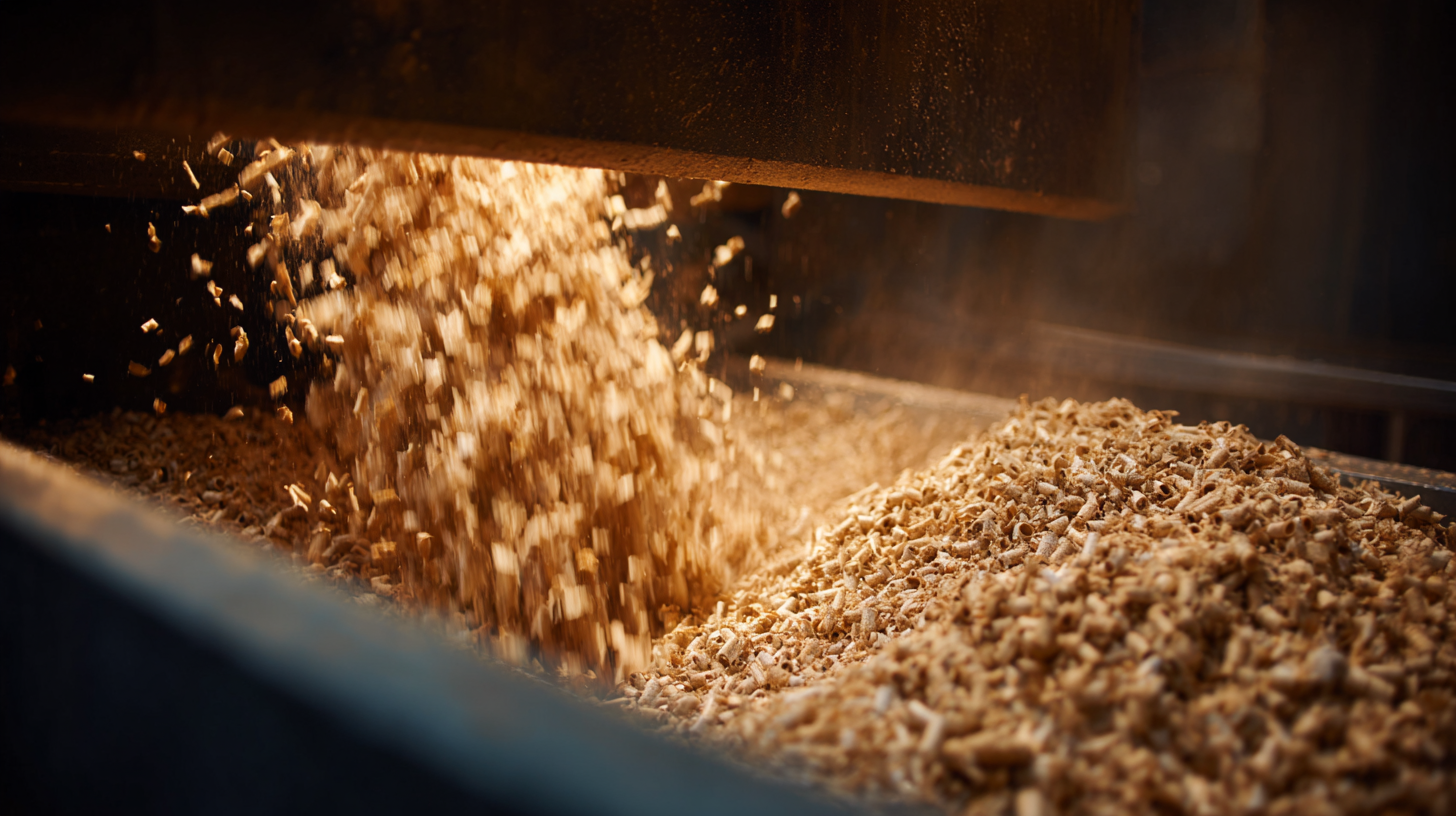
Moreover, the adoption of advanced monitoring systems in pellet mills is revolutionizing production efficiency. Real-time data analytics enables operators to track performance metrics and identify areas for improvement. This level of transparency ensures optimal resource utilization and helps in maintaining product quality while keeping emissions in check. As companies embrace these innovative technologies, the shift towards more sustainable practices in pellet production becomes not just an option but a necessity for the future of the industry.
Key Features of Advanced Pellet Mills for Eco-friendly Operations
Advanced pellet mill technologies are paving the way for eco-friendly production practices, integrating efficiency with sustainability. Modern pellet mills are designed with key features that promote environmentally responsible operations. For instance, innovations in biomass conversion technology enable the efficient use of feedstock, maximizing yield while minimizing waste. A recent review highlights advancements in algal biorefineries, indicating a shift towards utilizing aquatic biomass as a resource for high-value products and biofuels. This approach not only supports sustainable agriculture but also offers environmental solutions that align with global green initiatives.
Alongside these technological advances, the steel industry is undergoing significant transformations. With expansions like the recent increase in production capacity at a major facility to 8 million tonnes per annum, the push for sustainable practices is evident. Such investments in advanced manufacturing capabilities integrate eco-friendly methodologies into traditional processes, reflecting a broader commitment within the industry to reduce carbon footprints. The integration of cutting-edge technologies in both agriculture and manufacturing ensures the transformation of production systems toward sustainability, showcasing a future where eco-conscious operations become standard practice rather than an exception.
The Future of Sustainable Production with Advanced Pellet Mill Technologies
| Feature | Description | Benefit |
|---|---|---|
| Energy Efficiency | Utilizes advanced motors and optimized operation. | Reduces energy consumption and lowers operational costs. |
| Automation Features | Integrated automated controls for monitoring and operation. | Enhances production consistency and reduces manual labor. |
| Material Versatility | Capable of processing various raw materials effectively. | Increases operational flexibility and product variety. |
| Reduced Emissions | Incorporates filters and cleaner technologies. | Minimizes environmental impact and enhances sustainability. |
| Compact Design | Space-saving construction without compromising capacity. | Optimizes floor space while maximizing output. |
Integrating Renewable Energy Sources in Pellet Manufacturing
As the global demand for sustainable energy solutions accelerates, integrating renewable energy sources in pellet manufacturing emerges as a vital strategy for enhancing production efficiency and environmental sustainability. Recent reports indicate that utilizing renewable energy in the pellet production process can reduce greenhouse gas emissions by up to 45%, significantly contributing to climate change mitigation efforts. Advances in pellet mill technologies enable manufacturers to harness solar, wind, and biomass energies, leading to a more resilient supply chain and decreased reliance on fossil fuels.
Moreover, the implementation of renewable energy systems within pellet manufacturing facilities not only lowers operational costs but also allows production to be more agile and responsive to energy market fluctuations. Studies show that incorporating renewable energy can lower energy costs by as much as 30%, optimizing the overall economic feasibility of pellet manufacturing. As stakeholders increasingly recognize the importance of sustainability, those adopting advanced pellet mill technologies alongside renewable energy integration are likely to lead the industry, providing eco-friendly solutions that meet both market demands and regulatory pressures.
Best Practices for Optimizing Production Efficiency in Pellet Mills
In the realm of sustainable production, optimizing efficiency in pellet mills is crucial for meeting both economic and environmental goals. As highlighted by a recent report from the FAPRI (Food and Agricultural Policy Research Institute), advancements in pellet mill technologies have the potential to reduce energy consumption by up to 30%, which significantly lowers operational costs for feed processing plants. Companies like Shanghai Zhengyi Machinery Engineering Technology Manufacturing Co., Ltd. are at the forefront of this transformation, leveraging over 25 years of expertise to manufacture high-quality feed processing machinery and pellet mill dies.
Implementing best practices in pellet production is essential for maximizing output while minimizing waste. Techniques such as proper die selection, temperature control, and moisture management are vital components that can enhance the performance of pellet mills. Data indicates that optimal conditioning temperatures can improve pellet durability by as much as 15%, leading to higher-quality feed products. By collaborating with specialized manufacturers like CPSHZY, businesses can adopt these best practices to not only improve production efficiency but also contribute to sustainable practices in the feed industry and aquaculture farming.
Assessing the Environmental Impact of Pellet Production Techniques
As the global demand for sustainable energy sources continues to rise, the pellet production industry has emerged as a crucial player. Recent studies indicate that advanced pellet mill technologies can significantly reduce the environmental footprint of biomass production. For instance, a report by the Food and Agriculture Organization (FAO) highlights that transitioning to more efficient pellet production techniques can lower greenhouse gas emissions by up to 30% compared to traditional methods. This reduction is primarily achieved through enhanced energy efficiency and less waste generation during the production process.
Moreover, the Life Cycle Assessment (LCA) of pellet production has shown that utilizing sustainable raw materials, such as agricultural residues or dedicated energy crops, can further minimize environmental impacts. A study published in the Journal of Cleaner Production reveals that when produced using environmentally responsible practices, pellets can contribute to a net reduction in carbon emissions, with potential savings of around 220 million tons of CO2 annually if global adoption increases. These advancements in pellet mill technologies not only support energy transition goals but also align closely with global sustainability targets by promoting responsible resource use and waste management in the biomass industry.
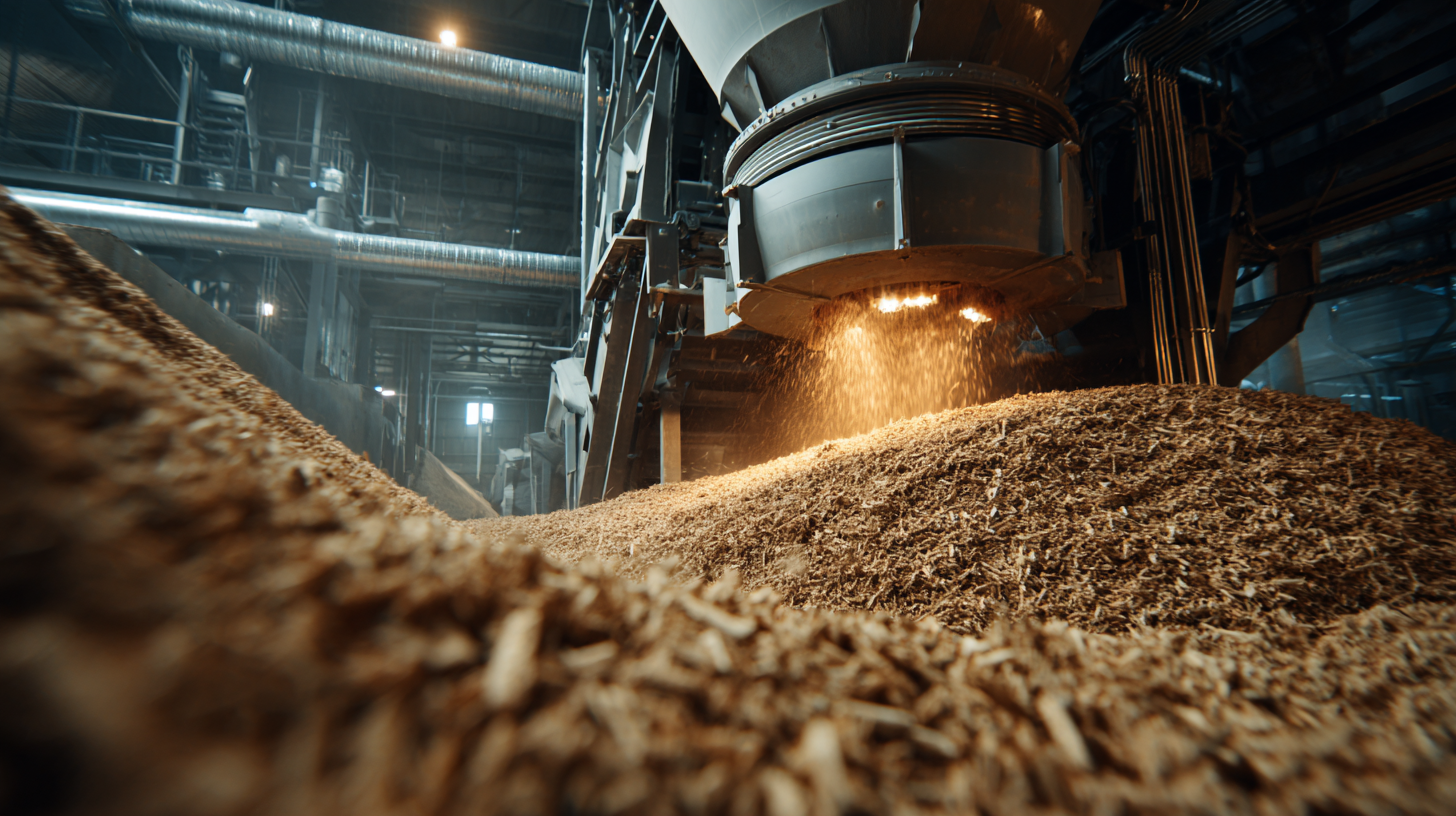
Future Trends in Pellet Mill Technologies for Green Manufacturing
As industries increasingly embrace green manufacturing practices, the evolution of pellet mill technologies plays a pivotal role in achieving sustainability. Advanced pellet mills are at the forefront of this transition, significantly enhancing the efficiency of biomass conversion into energy and eco-friendly products. These innovations allow manufacturers to optimize resource usage, reduce waste, and lower carbon emissions, aligning production processes with global sustainability goals.
Future trends in pellet mill technologies include the integration of automation and smart manufacturing practices. With the use of Internet of Things (IoT) devices and AI-driven analytics, manufacturers can monitor and adjust production parameters in real time, ensuring optimal performance and minimal environmental impact. Additionally, the development of new materials and processes is set to yield higher-quality pellets, improving combustion efficiency and overall energy output. As these technologies advance, they not only bolster the sustainability of manufacturing but also position businesses to meet the increasing demand for renewable resources in a world striving for a greener future.
The Future of Sustainable Production with Advanced Pellet Mill Technologies
This chart illustrates the projected trends in the adoption of advanced pellet mill technologies for sustainable production over the next five years. The data shows an increasing commitment to innovative manufacturing techniques aimed at enhancing eco-friendliness and efficiency in production processes.
FAQS
: Innovative technologies are crucial for advancing sustainable pellet production by transforming biomass processing methods, minimizing waste, and reducing carbon footprints.
Modern pellet mills integrate high-efficiency motors and low-energy consumption machinery, significantly decreasing energy requirements during the pellet production process.
Advanced monitoring systems allow for real-time data analytics, enabling operators to track performance metrics, optimize resource utilization, and maintain product quality while minimizing emissions.
Biomass conversion technology promotes efficient use of feedstock, maximizing yield and minimizing waste, which is critical for eco-friendly pellet production.
Algal biorefineries utilize aquatic biomass to produce high-value products and biofuels, supporting sustainable agriculture and aligning with global green initiatives.
The steel industry is expanding production capacities and integrating eco-friendly methodologies into traditional processes, reflecting a commitment to reducing carbon footprints.
The shift is seen as a necessity for the future of the industry, as companies must adopt sustainable practices to meet global sustainability goals.
The integration leads to a transformation of production systems toward sustainability, making eco-conscious operations standard in both sectors.
Eco-friendly operations refer to production practices that prioritize environmental responsibility, efficiency, and sustainability in pellet manufacturing processes.
These advancements illustrate a commitment across industries to reduce carbon footprints, enhance productivity, and align operations with environmental sustainability goals.
Conclusion
The future of sustainable production in the pellet mill industry is being shaped by innovative technologies that enhance eco-friendly operations. Advanced pellet mills are equipped with key features that not only improve efficiency but also significantly reduce the environmental impact of production processes. By integrating renewable energy sources into pellet manufacturing, companies can further align their operations with sustainability goals. Best practices for optimizing production efficiency are critical, allowing producers to meet the growing demand for sustainable products without compromising on quality.
As a leader in this field, Shanghai Zhengyi Machinery Engineering Technology Manufacturing Co., Ltd. is committed to driving these advancements. With over 25 years of experience in manufacturing pellet mill dies and providing environmental protection solutions, CPSHZY is at the forefront of promoting green manufacturing practices within the feed processing and aquaculture sectors. By embracing future trends in pellet mill technologies, the industry can move towards more sustainable and responsible production methods.
Related Posts
-

7 Essential Features of the Best Poultry Feed Machine for Global Buyers
-

Unwavering Quality of Chinese Manufacturing in the Leading Pellet Mills for Feed
-
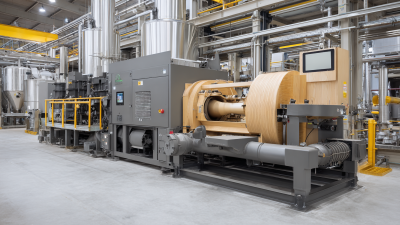
7 Best Pellet Mill Equipment Innovations Transforming the Industry Today
-
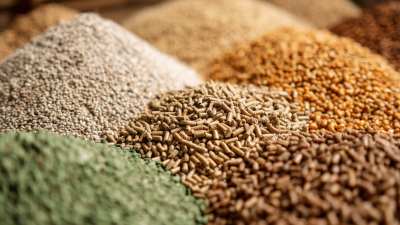
Challenges in Livestock Feed Pellet Mill Production: Navigating Quality and Efficiency Issues
-
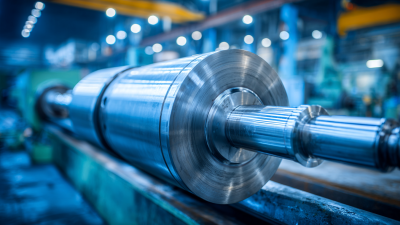
Advantages of Utilizing a Drum Mixer Shaft in Your Production Process
-
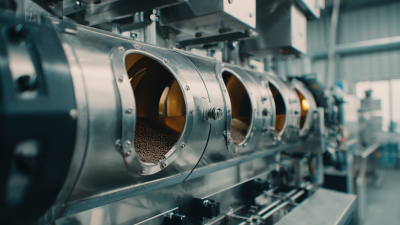
Innovative Solutions for Enhancing Your Feed Mill Mixer Performance
Blog Tags:

